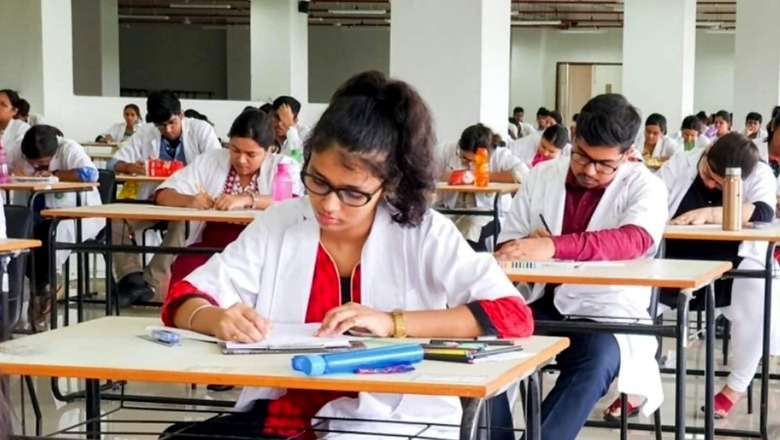
views
The Narendra Modi-led government has approved reservations for OBC and EWS (economically weaker section students in All India Quota for medical admissions. Now, for admission to both graduate (MBBS, BDS), postgraduate and diploma level medical courses students hailing from other backward class categories (OBC) will get 27%, and those from the Economically Weaker Section (EWS) will get 10% reservation.
This decision is expected to benefit every year nearly 1500 OBC students in MBBS and 2500 OBC students in postgraduation and also around 550 EWS students in MBBS and around 1000 EWS students in postgraduation.
The reservation will be offered under the All India Quota (AIQ). Under the AIQ, 15% reservation is offered to SC and 7.5% to ST category students already. The new quota will be in addition to the existing norms.
After clearing the NEET (both UG and PG) the students who clear the exam have to appear for counselling. The counselling takes place at both the central and state level. As many as 50% of PG and 15% of all UG seats come under central quota or All India quota. The new reservation will be added to the AIQ segment.
As reported by news18.com earlier, PM Narendra Modi held a meeting on Monday evening to discuss the long-pending demand of OBC reservations in the medical colleges. PM was in favour of not only offering reservations to OBC candidates but also to the EWS category.
After announcing the quota, PM Modi took to Twitter and said, “Our Government has taken a landmark decision for providing 27% reservation for OBCs and 10% reservation for Economically Weaker Section in the All India Quota Scheme for undergraduate and postgraduate medical/dental courses from the current academic year.” He added, “This will immensely help thousands of our youth every year get better opportunities and create a new paradigm of social justice in our country.”
The All India Quota (AIQ) Scheme was introduced in 1986 under the directions of the Hon’ble Supreme Court to provide for domicile-free merit-based opportunities to students from any State to aspire to study in a good medical college located in another state.
Education Minister Dharmendra Pradhan said, “The landmark decision is in-sync with the reforms carried out in the field of medical education since 2014. Without reducing the number of seats available for the unreserved category, this step will benefit more than 5500 students from the backward & economically weaker sections.”
During the last six years, MBBS Seats in the country have increased by 56% from 54,348 seats in 2014 to 84,649 seats in 2020 and the number of PG seats have increased by 80% from 30,191seats in 2014 to 54,275 seats in 2020. During the same period, 179 new medical colleges have been established and now the country has 558 medical colleges.
Read all the Latest News, Breaking News and Coronavirus News here.



















Comments
0 comment